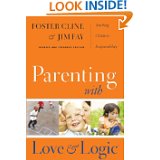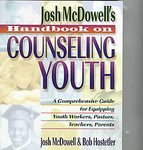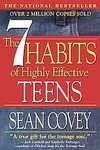|
Love and Logic ParentingSubmitted by Debra Curran
I worked in a group home in Northern California. It was a home with girls ages 12 – 18 who had all been in trouble with the law, all had a history with substance abuse and a lot of them were entrenched in gang activity. They came in scared, angry and ready to run. And needless to say they had no respect for authority. This is where I was introduced to Love and Logic Parenting. Jim Fay, an educator and award winning consultant and Foster Cline, an internationally recognized psychologist, teamed up to write “Parenting with Love and Logic”. As part of my training for working at the group home, I did a series of Love and Logic workshops. It is a style of parenting that puts the responsibility of the child’s behavior squarely on the shoulders of the child. What a novel idea! Your responsibility is to provide the tools, structure and stability to allow the child the opportunity to succeed, not just through childhood but through life. And the first step in doing that is to understand that the child also needs the opportunity to fail. Often, it is through their failures that they will learn the most. One concept I learned was the “Faucet Off” approach. Somehow we have come to think that if our child is happy, that shows that I am a good parent. And on the contrary, if my child is not happy, I am failing as a parent. Children learn quickly to manipulate this twisted belief. We’ve all witnessed the youngster who screams bloody murder because his mom has said "no" to the child’s desire for cookies he saw on the shelf at the grocery store. And then we watch as she rewards the child’s outburst and buys him the cookies. Who’s training who? Faucet off says that we turn the flow of all the extra delights off to the child until he or she complies with our request. For example, you ask Susie to pick up her toys, but, she refuses. No problem, you tell Susie to take her time. A couple of hours later the toys are still strung all over the bedroom floor. You call down the hall and ask Susie’s brother, Timmy if he would like an ice cream cone. Of course Susie wants one too. And with all the sincere sympathy you can muster you look at Susie and say “I would love to give you an ice cream cone, but the toys are still on the floor.” She may run and clean up the toys and then want her treat, but the time for a treat has passed. Do not give in and give her an ice cream cone or any other treat. You want her to know that if she doesn’t do what you’ve asked her to do, she will miss out. Your child is choosing not to obey, and by choosing not to obey he or she is choosing the consequences as well. Even and actually better yet when they don’t know what that consequence is.
There are times when you can’t wait for them to get around to doing what you asked. Nancy asks her 15 year old son to do the dishes and to have them done by 7pm. Seven-o-clock rolls around and the dishes haven’t been touched. No need to remind Logan, no need to yell. Nancy simply goes in and does the dishes. Wait! How does that work? The kid got off scott free. That brings up another concept I learned through Love and Logic, the power of the unknown future consequences. A week has passed since Logan didn’t do the dishes. He comes in after school all excited because he has been invited to go skiing with a friend. Nancy listens and comments “Wow, what a wonderful opportunity. It sounds like so much fun. But, remember the other day when I asked you to get the dishes done by 7 and you didn’t do them at all? Well, unfortunately, I am going to have to say no to this outing. But, I am sure you will get your chores done in the future so you can go next time.” One of my foster children who was quite capable of dressing herself, yet was just not in the mood to do so. I told her that she needed to be dressed in 15 minutes, laid out her clothes, and set the timer. The timer went off and she still was in her pajamas, so I helped her get dressed. Later that afternoon, I started rounding up the other kids to go to the park. She was going to have to stay home. She promised that the next time she would get dressed when asked. I thanked her for that promise. Then, she wanted to know if she could go to the park with us. “No, you didn’t get dressed when you were asked.” “But, I promised that next time I will” she countered. I said, “And I really appreciate that, however, this time you didn’t and so, no, I can’t take you to the park.” If you tell your child up front the consequence it gives them the opportunity of weighing their “options”. You tell Johnny that if he doesn’t make his bed you aren’t going to let him go to the dance. Johnny thinks “Cool, I didn’t want to go anyway, no big deal.” Oops, that didn’t work out the way we wanted it to. Another powerful concept I learned was the importance of natural consequences. I’m sure you know parents that never let their child experience the full affect of the natural consequences of their choices. Yet, they are one of the most powerful ways your child will learn to make healthy choices. Your 17 year old daughter gets a speeding ticket and you pay it for her. Or your son never remembers to take his homework to school, leaving you to make a special trip for him. I know, we want him to do well in school. Yet, a bad grade for not turning in his home work and the consequences he may face because of that will teach him volumes compared to the lesson that says that you are more responsible for his homework than he is. And back to the speeding ticket. Whose ticket is it? Hers! She should pay for it. And if she doesn’t have the money, I’m sure there are all kinds of extra chores around the house she can do to earn it and pay you back. Being irresponsible hurts, and the sooner they learn that lesson, the sooner they will make wiser choices. No need to yell, or tell them they are stupid, or even get mad. Instead show sincere sympathy. “Ouch, a speeding ticket! How are you going to handle that?” “You forgot your homework? Bummer! How is that going to affect your grade?” There is so much empowerment through Love and Logic parenting. For you, the parent, but also for your kids. It puts the fun back into parenting. I highly recommend finding a class to attend or getting their book. Debra Curran |
Books for Parenting


